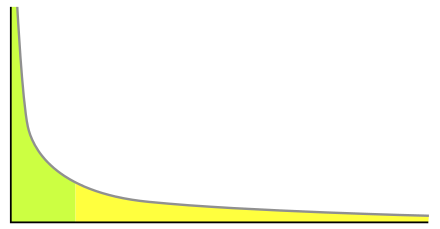Why you and I will never have a 15 hour work week
tldr: time to market.
Recently Keynes' prediction of a 15 hour work week has resurfaced in discussions ranging from automation to basic income. Why exactly do we still work 40+ hours? I've seen many reasons*, but I'd like to focus on something I missed in all the articles and comments: time to market. Companies need their creative employees to deliver at peak performance to achieve the fastest time to market. How can they invent & ship their products as soon as possible? Sticking to a small, stable team that works about 40 hours per week per person.
So in conclusion: I don't think that innovating companies that want to stay competitive will ever let their creative people have a 15 hour work week. Nothing stops the employees from retiring at 40 though ;)
discuss on HN
* These are the reasons I've seen:
Recently Keynes' prediction of a 15 hour work week has resurfaced in discussions ranging from automation to basic income. Why exactly do we still work 40+ hours? I've seen many reasons*, but I'd like to focus on something I missed in all the articles and comments: time to market. Companies need their creative employees to deliver at peak performance to achieve the fastest time to market. How can they invent & ship their products as soon as possible? Sticking to a small, stable team that works about 40 hours per week per person.
There are two reasons for this:
- In creative professions the individuals are not easily interchangeable. You can have a different bricklayer continue your part of a wall the next day, getting another programmer to continue your piece of code is much more difficult. The same people have to work on a project for sustained periods of time.
- In the last century it has been demonstrated that you get most out of employees when they work close to 40 hours per week.
So in conclusion: I don't think that innovating companies that want to stay competitive will ever let their creative people have a 15 hour work week. Nothing stops the employees from retiring at 40 though ;)
discuss on HN
* These are the reasons I've seen:
- Wealth inequality: the top X % are reaping the benefits, the rest don't have the wealth to work less
- Work as leisure: people enjoy work more than their free time
- Bullsh*t jobs: we invent unimportant work to keep busy
- Consumerism: we want more and higher quality things

Comments
Post a Comment